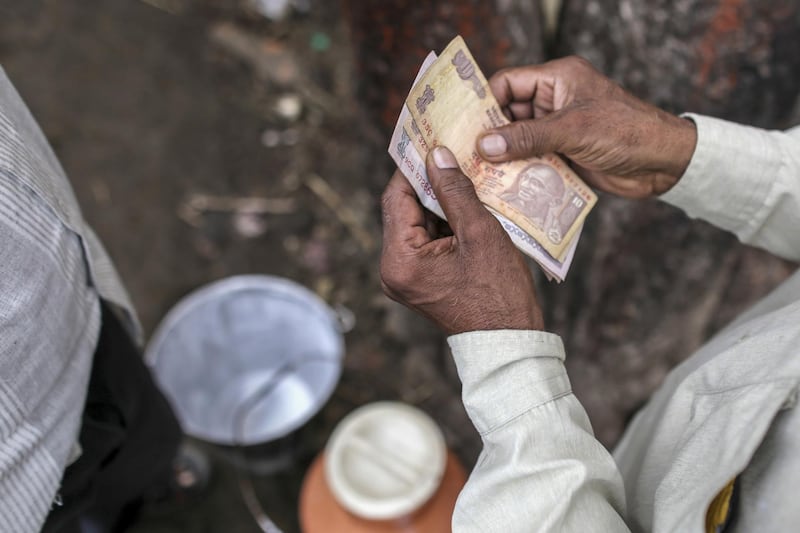The weak Indian rupee is raising concerns about the impact it could have on the country's economy.
The rupee has fallen by 6 per cent against the US dollar this year, currently trading at around 68 rupees (Dh3.69) to the greeback. It is among Asia's worst-performing currencies this year, tumbling to an 18 month low last week.
This is good news for Indian expats in the UAE, who can buy more rupees when remitting their dirhams, which is pegged to the dollar. While it is good for Indian's living abroad, it is a threat to Indian economy as weaker currency makes imports more expensive, leading to wider deficits.
“Adding to the [economic] woes is the rupee’s depreciation, which increases the cost of imports, particularly of oil,” according a report by Crisil, a ratings and research firm which is part of Standard & Poor's.
Foreign investors have lowered their holdings of rupee-denominated government and corporate bonds by 4.4 billion rupees this quarter, which is the highest on record, according to Bloomberg news.
The weakness in the rupee is “a headwind for the India economy”, says Devang Mehta, the head of equity advisory at Centrum Wealth Management in Mumbai.
_______________
Read more:
Investors dump Indian bonds on concerns over banking regulations, weakening rupee
_______________
However, despite worries that the rupee could lose further level, there are some who argue that the Indian currency's weakness hasn't reached a panic level yet.
The likelihood of a complete rout of the rupee such as the one experienced five years ago today seems low,Shilan Shah, the senior India economist at Capital Economics, says. “There is no need to panic."
The current account deficit is much smaller now compared to 2013 and foreign exchange reserves are close to record highs, giving the Reserve Bank of India (RBI) scope to smooth volatility in foreign exchange markets and prevent dramatic drops.”
He predicts that the rupee will rebound against the dollar over the coming months. The currency could gain some support if the RBI raises interest rates.
“The sharp rise in core inflation and hawkish commentary from the RBI has reinforced our view that the central bank will hike interest rates much sooner than generally anticipated.” says Mr Shah who expects the benchmark rate hike as soon as next month.






